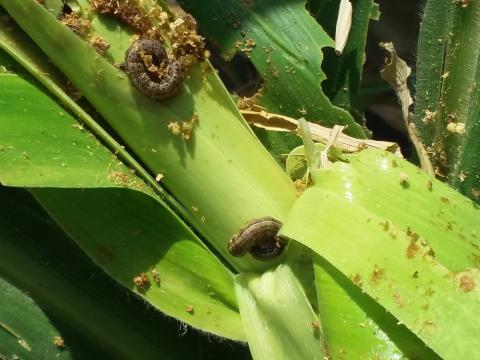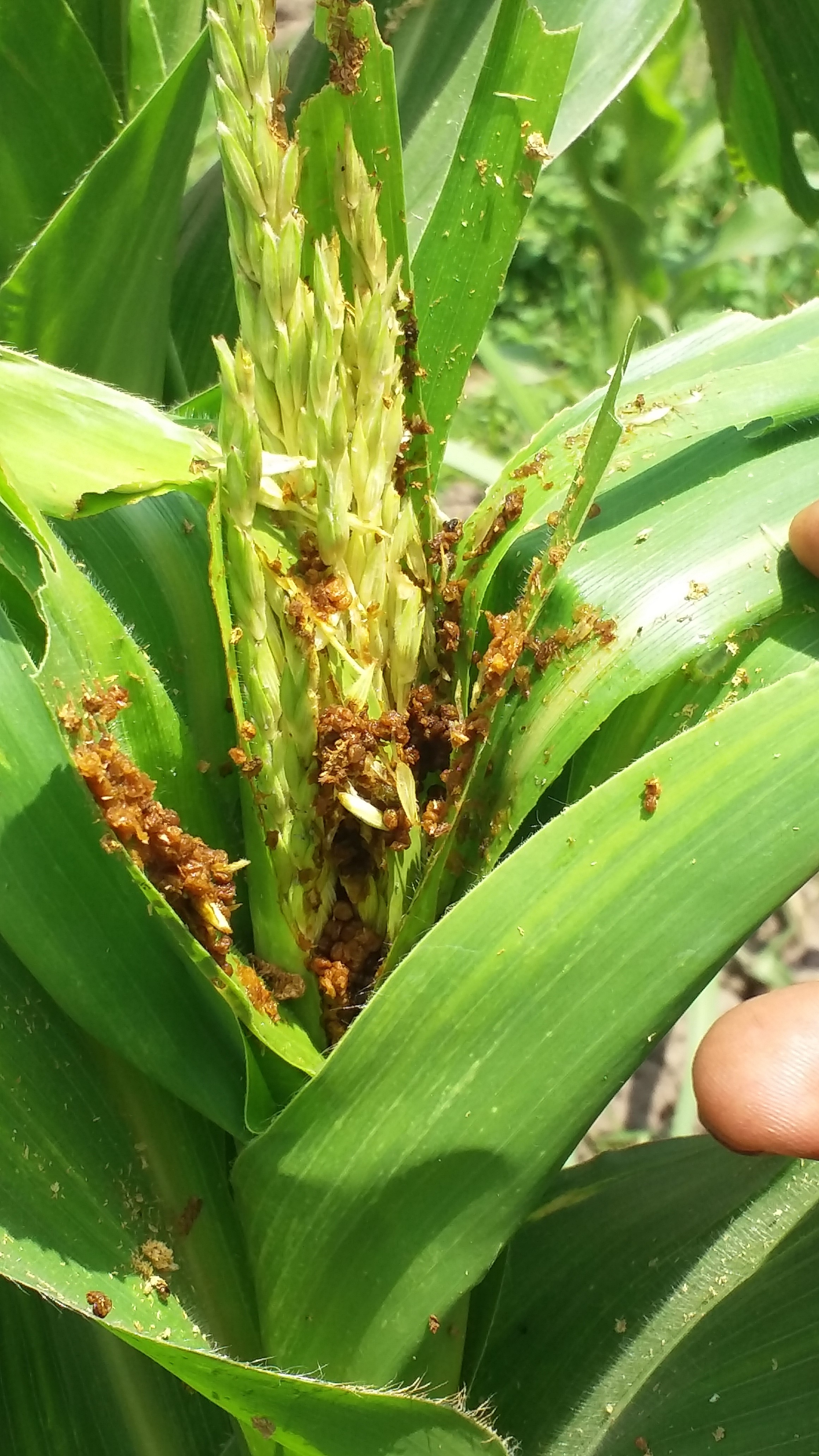World Vision Ethiopia responds to contain army-worm infestation outbreak

According to UNOCHA bulletin issued on 19 June 2017, the number Ethiopians receiving humanitarian assistance has increased from 5.6 million to 7.8 million in the first quarter of the year due to poor performing short rainy season (Belg) and long rainy season (Meher) rain, and is expected to heighten further in the second half of the year.
The recent escalation of fall armyworm in different parts of the country is further worsening the situation. It is mainly a pest of maize, with potential hosts from 26 plant families. Fall armyworm is a dangerous trans-boundary pest with a high potential of spreading due to bio-ecological and trade aspects.
Fall armyworm (FAW) was first detected in Central and Western Africa in early 2016 (Benin, Nigeria, Sao Tome and Principe, and Togo) and in late 2016, in Southern Africa. In 2017 it has been detected in the whole of mainland Southern Africa (except Lesotho and the Island States), in Cameroon, Ghana, Niger and Ethiopia, Kenya, Uganda, Burundi, Rwanda, and it is expected to go further.
According to government sources FAW infestation is currently wreaking havoc on belg crops across six regions in Ethiopia and is spreading at an alarming rate. Army worm infestation has now covered about 52,962 hectares in 144 districts across the country. The Ministry of Agriculture and Natural Resources called on INGOs and partners for a coordinated response to contain the rapidly spreading FAW, particularly in maize growing areas.
Government reports show that many farmers in various regions have already planted maize or will plant in June. As more areas plant maize, it is very likely that the pests will spread to more maize areas including WV Ethiopia operational areas/APs in Amhara, SNNPR and Oromia regions.
Reports from eight WV Ethiopia Area Programmes in Amhara, Oromia, and SNNP regions indicated that the armyworm so far damaged crops planted in more than 15,895 hectare affecting more than 244,692 people including children (44,489 households). Government authorities at the local/woreda level have officially requested WVE to support the response activities by providing essential chemicals and logistical support.
Accordingly, WV Ethiopia National Director approved US$115,000 from the National Emergency Preparedness and Response Fund (NEPRF) which will be matched with other resources of the APs in order to support the procurement and control of the devastating pest infestation in the affected areas.
Also resources have been solicited to respond to the current drought in the country. Accordingly, WV Ethiopia has secured US$800,000 from WV Hong Kong PNS. Further, two concept papers worth US$330,000 submitted to French embassy and US$540,000 to Global Affairs Canada for Emergency WASH and Nutrition and Dolo Ado refugees, respectively.
